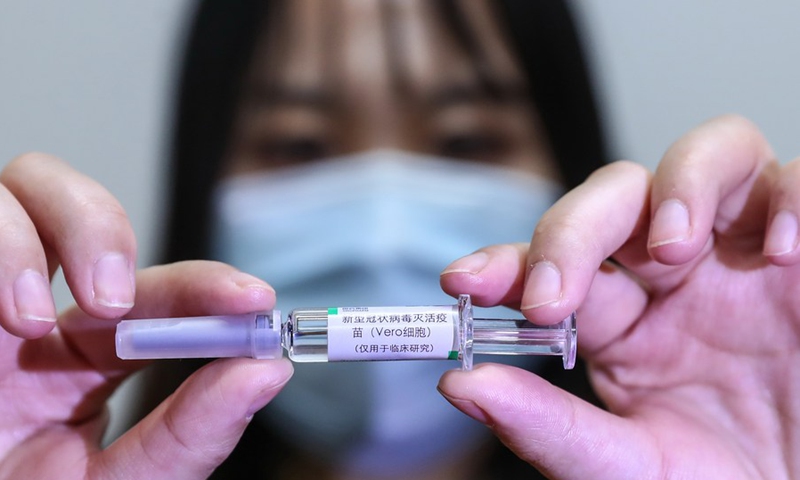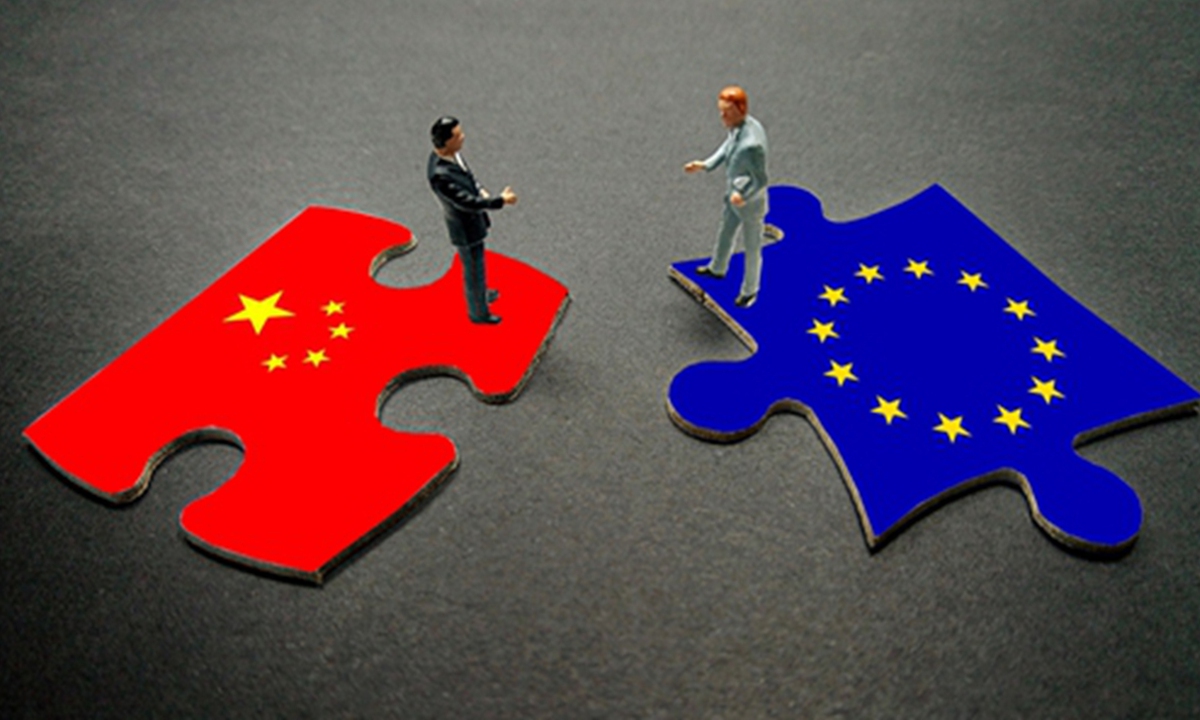Nth example of how the world depends on China.... decouple did you say?
Chinese glassmakers ramp up production to meet rising global demand, as energy crisis in Europe hurts German vaccine vial production.
Energy crisis in Europe hurts German vaccine vial production
By GT staff reporters Published: Aug 17, 2022 10:52 PM
A staff member displays a sample of the COVID-19 inactivated vaccine at a vaccine production plant of China National Pharmaceutical Group Co., Ltd. (Sinopharm) in Beijing, capital of China. (Xinhua/Zhang Yuwei)
Chinese glass manufacturers are actively preparing the production of glass bottles to meet global demand especially in the field of pharmaceutics, as German glass bottle producers face the risk of production cuts and shutdowns due to Europe's rising energy crisis, again showing China's contribution to stabilizing global industrial chains.
As Europe faces the natural gas supply crunch due to Russia-Ukraine tensions, a number of Western media outlets have warned of the suspension and even shutdowns of Germany's glass producers.
A German local media outlet thelocal.de published an article titled "Gas crunch pushes German glassmaker to the brink," citing a veteran industry participant saying that "if there is a halt in gas supplies… then glass production will very likely disappear from Germany."
Experts noted that, to make glass, sand is heated to 1,500-2000 C, and gas is the energy source of choice.
"Therefore, the shortage of natural gas in Germany may have a large impact on the country's glass industry," an energy analyst surnamed Guan told the Global Times on Wednesday.
However, the hardship faced by Germany's glass industry may spillover to impact the global industrial chain, especially in the pharmaceutical-related sector.
SCHOTT AG, one of the major manufacturers of neutral borosilicate glass, which is used in the pharmaceutical industry in containers for drugs and vaccines, accounts for about 50 percent of the global market share of vaccine vials.
The company's largest global production site is in Mainz, Germany, which means that if the gas supply in Europe doesn't improve, global vaccine vials will become scarcer.
China's glass producers have become a strong back-up for global vaccine vials production in recent years. A number of Chinese companies have made technological breakthroughs in the manufacture of neutral borosilicate glass and have established production capacity.
According to the China Association for Vaccines, the annual output of vaccine vials in China could reach 8 billion.
Facing a potential global vaccine vials shortage, domestic producers have actively prepared production capacity to meet growing market demand.
"At present, we have received orders from European countries, with a rise in the number of orders and inquiries. The company has sufficient production capacity to meet overseas market demand," Shandong Pharmaceutical Glass Co told the Global Times on Wednesday.
Another glass-making enterprise requesting anonymity said that it is aware of a shortage of glass bottles in Germany, and recently received inquiries from Europe. "We are actively making preparations," it told the Global Times on Wednesday.
China's glass industry has seen rapid development. According to the China Daily Glass Association, the output of daily-use glass products and glass packaging containers in the first half of 2021 reached 13.7 million tons, a cumulative increase of 15.70 percent year-on-year.
The export value of the daily-use glass industry totaled $3.49 billion, up 52.06 percent.
"In 2021, in the face of multiple challenges including COVID-19, the industry achieved high year-on-year growth in production and exports. Entering 2022, combined with the effective control of the virus, central and local governments ramped up support for small enterprises, including the glass industry, to address their difficulties," the association said in a report.
Foreign enterprises also hold a bullish view of China's glass manufacturing industry. SCHOTT AG opened a new factory in East China's Zhejiang Province in June 2021, with production capacity of 20,000 tons after the first phase is completed.
"The opening of the factory will alleviate market shortage of vaccine vials, and guarantee a stable supply of neutral borosilicate glass, providing more support for the world's anti-virus action," the company said.
"China's manufacturing industry including the glass sector has made a great contribution to stabilizing global industrial chains since the outbreak of COVID-19, thanks to the country's effective control measures against the virus," Cong Yi, a professor at the Tianjin University of Finance and Economics, told the Global Times on Wednesday.
Despite the pandemic and global energy crisis, the country's overseas manufacturing capability is expected to strengthen, Cong noted.


